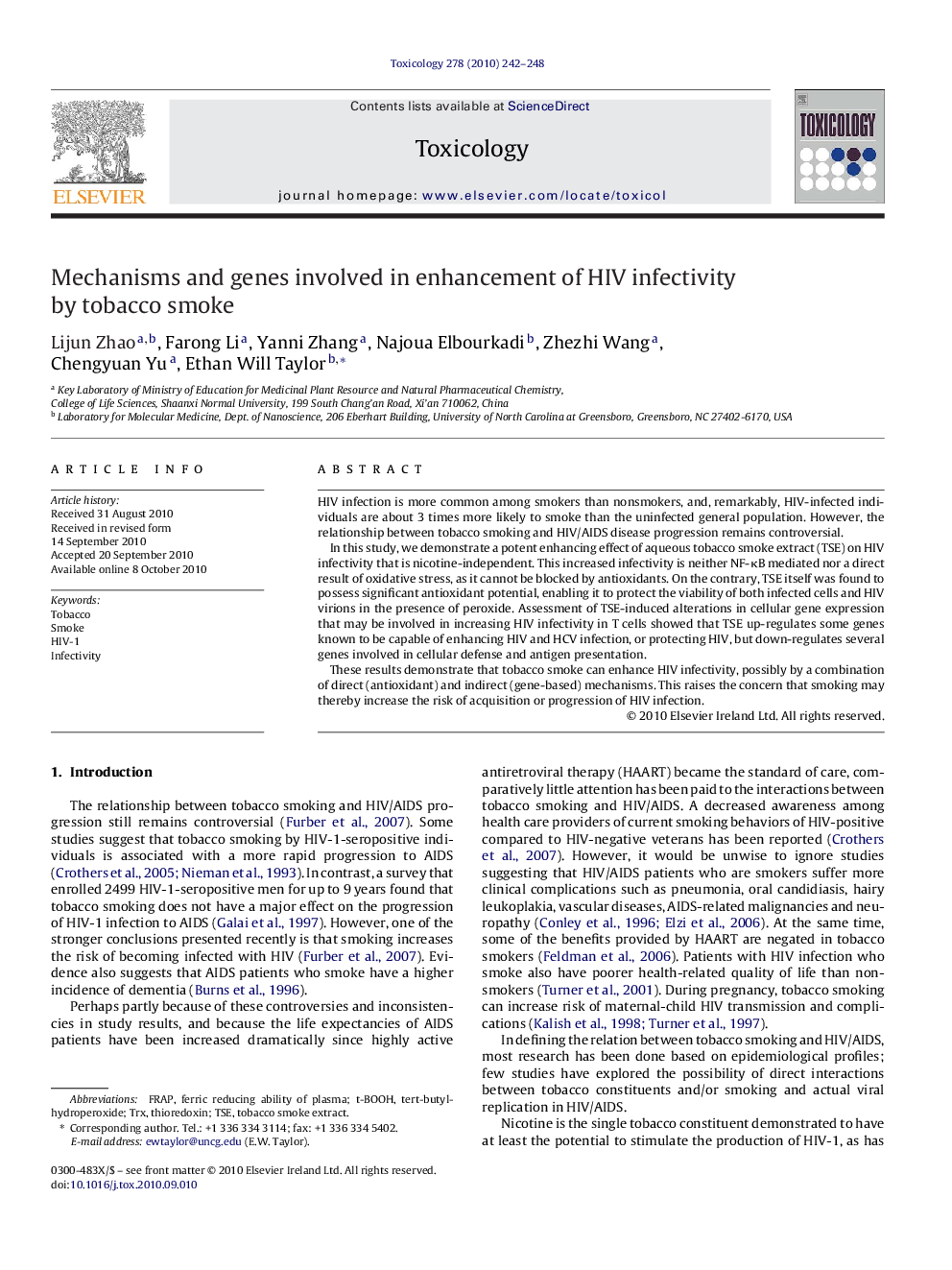| کد مقاله | کد نشریه | سال انتشار | مقاله انگلیسی | نسخه تمام متن |
|---|---|---|---|---|
| 2596129 | 1132510 | 2010 | 7 صفحه PDF | دانلود رایگان |

HIV infection is more common among smokers than nonsmokers, and, remarkably, HIV-infected individuals are about 3 times more likely to smoke than the uninfected general population. However, the relationship between tobacco smoking and HIV/AIDS disease progression remains controversial.In this study, we demonstrate a potent enhancing effect of aqueous tobacco smoke extract (TSE) on HIV infectivity that is nicotine-independent. This increased infectivity is neither NF-κB mediated nor a direct result of oxidative stress, as it cannot be blocked by antioxidants. On the contrary, TSE itself was found to possess significant antioxidant potential, enabling it to protect the viability of both infected cells and HIV virions in the presence of peroxide. Assessment of TSE-induced alterations in cellular gene expression that may be involved in increasing HIV infectivity in T cells showed that TSE up-regulates some genes known to be capable of enhancing HIV and HCV infection, or protecting HIV, but down-regulates several genes involved in cellular defense and antigen presentation.These results demonstrate that tobacco smoke can enhance HIV infectivity, possibly by a combination of direct (antioxidant) and indirect (gene-based) mechanisms. This raises the concern that smoking may thereby increase the risk of acquisition or progression of HIV infection.
Journal: Toxicology - Volume 278, Issue 2, 5 December 2010, Pages 242–248